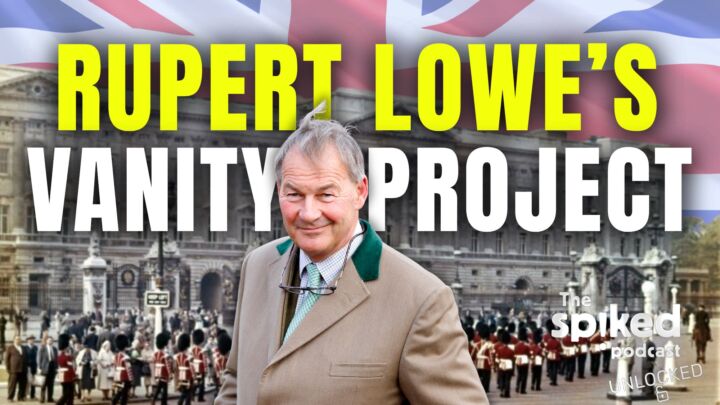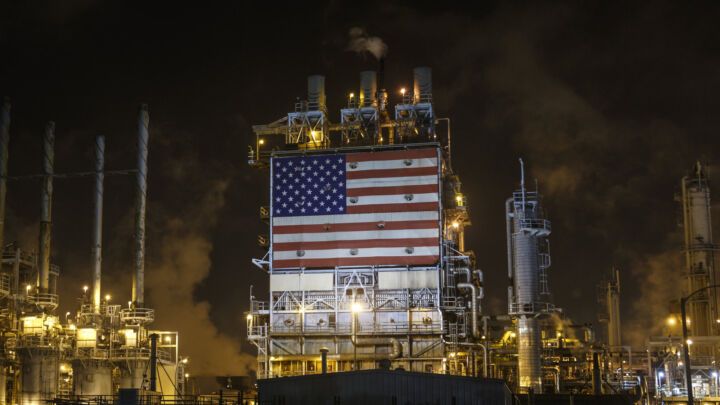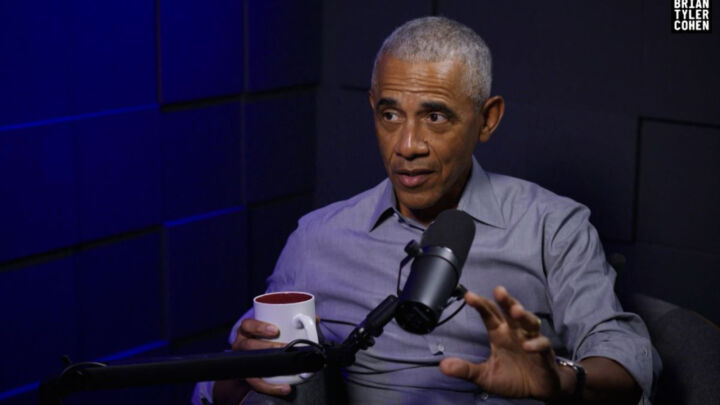HS2: giving politicians the feelgood factor
We need better transport infrastructure, but is HS2 really the answer?

Want unlimited, ad-free access? Become a spiked supporter.
The flailing attempts to justify the white elephant that is Britain’s new proposed High Speed 2 rail link (HS2) show that value to the public is always at the back of policymakers’ minds. This was painfully obvious this week when MPs were given their latest opportunity to properly debate the costs and benefits of HS2 during the second reading of the High Speed Rail (London – West Midlands) Bill. The passage of this bill is an essential step in getting the project underway.
HS2 would provide faster rail links between London and a number of major English provincial cities, including Birmingham, Manchester, Sheffield and Leeds. If all goes to plan, construction of phase one, from London to Birmingham, would begin in 2017 and be completed in 2026. Phase 2 would fork out from this section to go to Manchester and Leeds, with completion in 2033. The overall cost is estimated to be £50 billion, including some allowance for ‘contingencies’. Proponents of the plan have, at various points, suggested that HS2 would be good for the environment, increase travel speeds with resultant economic benefits from saved time, bridge the ‘north-south divide’, and provide much-need capacity on the railways. However, all of these claims are controversial, to say the least. What is needed is a critical look at the claims for HS2 – but we also need a thorough examination of how we can best invest to improve transport, to make travel fast and reliable for all and boost economic growth.
Unfortunately, with the Labour Party having recently confirmed its support for HS2, having ‘had another look’ at the project, the prospect of using the second reading of the enabling bill to have a genuine debate on the issue was gone. What resulted was a poorly attended, routine, even desultory debate. NIMBY (Not In My Back Yard) MPs, whose constituencies the line would run through, made up the main opponents to the bill. It passed by 452 votes to 41.
The need for an increase in spending for transport infrastructure in Britain is clear, but HS2 has become much more about burnishing the image of the Lib-Con coalition government’s popularity in the Midlands and north of England than improving travel for all. As such, the constantly changing economic justifications for the project look increasingly flimsy; they’re better described as excuses.
When the HS2 project was resurrected by the coalition government, the modest 23 minutes the new line would shave off the already short journey time between London and Birmingham was justified on the basis that anything that saved even a small amount of business peoples’ precious time was something worth paying for. Yet, as many pointed out, a quick glance at the average inter-city train will find people working away on laptops and smartphones, hooked up to in-train wifi. The argument that journey time is wasted time collapsed under the most cursory of scrutiny.
The line of argument then became focused on rail capacity. But when it was pointed out that the real capacity crisis was in commuter trains, ministers rapidly backtracked.
Sir David Higgins, the new executive chairman of HS2 Ltd, has put more pressure on the government to approve the project by claiming that speeding up the process will save some of the eye-wateringly high costs. To put the project budget of £50 billion into perspective, that is the equivalent of six London Olympics, three Heathrow airport runways, most of a new Thames estuary airport, or three years’ worth of the country’s entire research and development spend. Crucially, it would also easily pay for dozens of transport projects that would genuinely benefit millions of people, rather than the elite few travelling between a handful of cities.
The coalition’s original announcement of the project coincided with a bout of handwringing about the UK’s infamous north-south divide. At the time, the Conservative Party was eager to appear to be ‘doing something’ about it, and claimed that HS2 would assure regional development. However, while regional differences may be a source of economic and social problems, they aren’t always easy to understand, let alone resolve. Building a shiny new bullet train isn’t the solution. Indeed, Britain’s existing high-speed rail link has so far failed to deliver any meaningful regional development. The East Coast mainline is an established, fast and regular service connecting London to the north east of England and Scotland. Doncaster in Yorkshire is one of the stops on the line, with a handy journey-time of less than two hours from London. This is comparable to proposed HS2 journey times. But Doncaster has not thrived, or become a magnet for investment. It remains a relatively poor town, as do many other towns on the route.
The idea that HS2 could tackle the north-south divide was further undermined when it was pointed out that existing access to high-speed links may have contributed to increased southerly migration, reinforcing the economic position of the south-east of England. It is fast access from the north to London that is more often sought-after than the reverse.
With the £9 billion investment that has already gone into upgrading the West Coast mainline, on top of the existing East Coast mainline, it is possible to travel to London from even the most distant major UK cities in less than five hours. This is very similar to the time it takes to move between cities by high-speed rail in countries like France or Germany. But, as much larger countries, France and Germany were arguably in greater need of high-speed railways than Britain.
Inevitably, given the high costs and uncertain benefits of HS2, the figures were fudged and flattered by MPs and lobbyists. Proponents of HS2 simply cannot make as convincing an economic case for the project as can be made for other infrastructure proposals. According to most of the published models, new airport runways, trunk roads, increased rail electrification, longer trains and longer platforms would deliver many times more the cost-benefit multiple than HS2 and have a major impact on far wider areas of the country.
While it will present a sleek, glamorous and exciting image, HS2 is in reality an indulgence with huge costs. Higher taxation will be essential to pay for HS2, given that the return-on-investment is so low and uncertain. At current estimates, it will cost British taxpayers £1,500 each. That kind of money could be spent with far greater benefits elsewhere. It is only because of the desire of politicians to feel purposeful and the effective lobbying of commercial beneficiaries that a proposal like HS2 ever made it off the drawing board. Reason, necessity and value are factors that simply don’t count in this discussion; they are merely obstacles to be overcome in a miasma of bravado, hubris and obfuscation.
Peter Lloyd is a member of the Manifesto Club.
You’ve hit your monthly free article limit.
Support spiked and get unlimited access.
Support spiked and get unlimited access
spiked is funded by readers like you. Only 0.1% of regular readers currently support us. If just 1% did, we could grow our team and step up the fight for free speech and democracy.
Become a spiked supporter and enjoy unlimited, ad-free access, bonus content and exclusive events – while helping to keep independent journalism alive.
Monthly support makes the biggest difference. Thank you.










Comments
Want to join the conversation?
Only spiked supporters and patrons, who donate regularly to us, can comment on our articles.